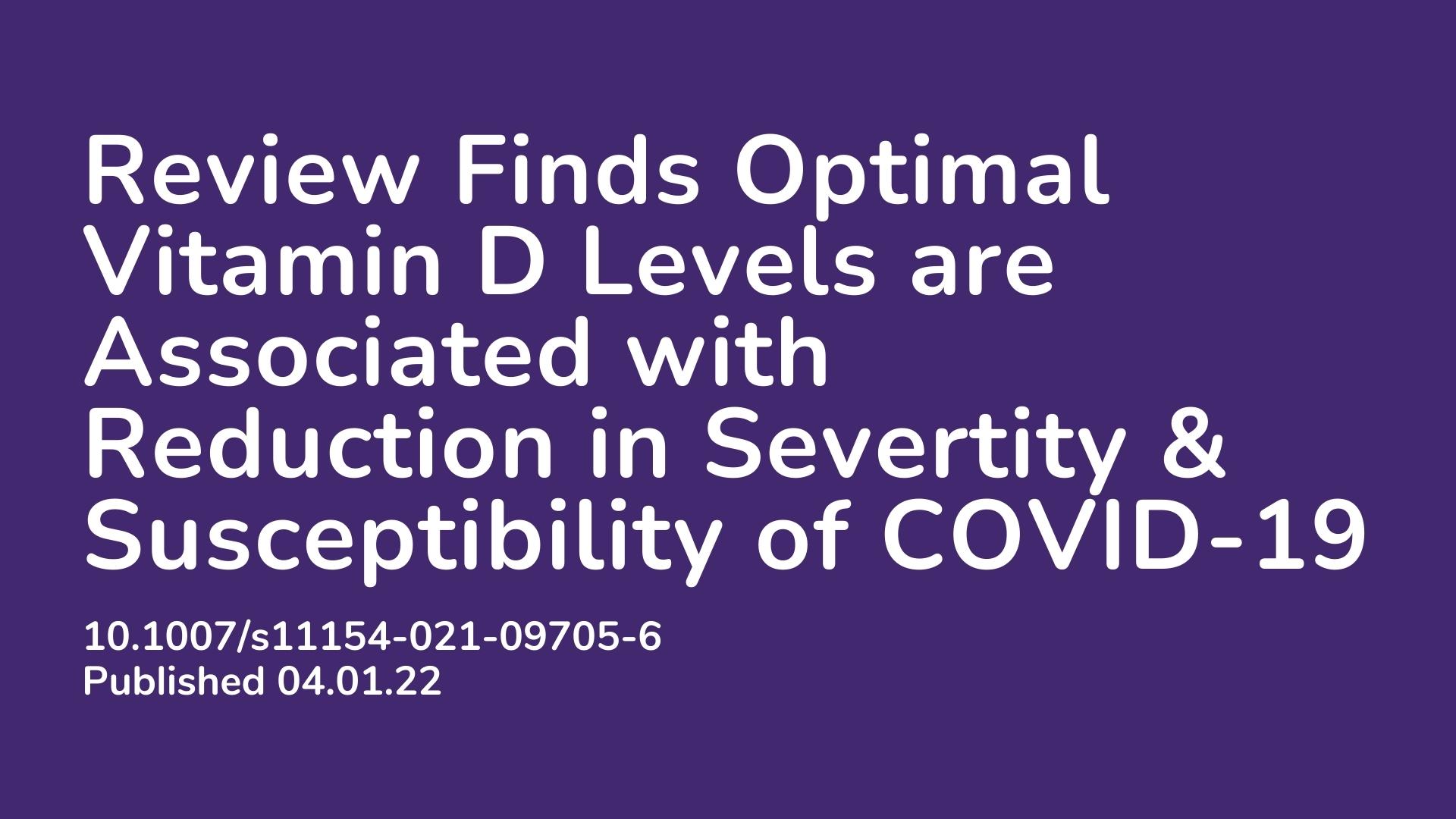Summary: This narrative review is summarising the available data on the relationship between vitamin D and COVID-19, as well as vitamin D’s role in inflammation, the immune system and cardiovascular and respiratory conditions. To date, there is no international guideline that has reached a consensus on suggesting sufficient vitamin D levels in preventing COVID-19 or in reducing its morbidity and mortality. However, based on the information reviewed in this paper, it is clear that aiming to achieve optimal vitamin D levels is indicated in reducing severity and susceptibility to COVID-19 and ameliorating respiratory infections.
Abstract:
Vitamin D is associated with biological activities of the innate and adaptive immune systems, as well as inflammation. In observational studies, an inverse relationship has been found between serum 25-hydroxyvitamin D (25(OH)D) concentrations and the risk or severity of coronavirus disease 2019 (COVID-19). Several mechanisms have been proposed for the role of vitamin D in COVID-19, including modulation of immune and inflammatory responses, regulation of the renin–angiotensin–aldosterone system, and involvement in glucose metabolism and cardiovascular system. Low 25(OH)D concentrations might predispose patients with COVID-19 to severe outcomes not only via the associated hyperinflammatory syndrome but also by worsening preexisting impaired glucose metabolism and cardiovascular diseases. Some randomized controlled trials have shown that vitamin D supplementation is beneficial for reducing severe acute respiratory syndrome coronavirus 2 RNA positivity but not for reducing intensive care unit admission or all-cause mortality in patients with moderate-to-severe COVID-19. Current evidence suggests that taking a vitamin D supplement to maintain a serum concentration of 25(OH)D of at least 30 ng/mL (preferred range 40–60 ng/mL), can help reduce the risk of COVID-19 and its severe outcomes, including mortality. Although further well designed studies are warranted, it is prudent to recommend vitamin D supplements to people with vitamin D deficiency/insufficiency during the COVID-19 pandemic according to international guidelines.
Article Publication Date: 04.01.22
DOI: 10.1007/s11154-021-09705-6



